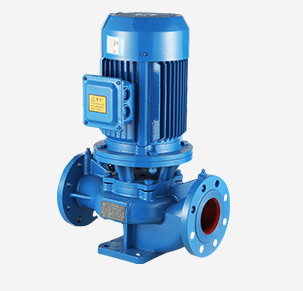Telugu
- Afrikaans
- Albanian
- Amharic
- Arabic
- Armenian
- Azerbaijani
- Basque
- Belarusian
- Bengali
- Bosnian
- Bulgarian
- Catalan
- Cebuano
- Corsican
- Croatian
- Czech
- Danish
- Dutch
- English
- Esperanto
- Estonian
- Finnish
- French
- Frisian
- Galician
- Georgian
- German
- Greek
- Gujarati
- Haitian Creole
- hausa
- hawaiian
- Hebrew
- Hindi
- Miao
- Hungarian
- Icelandic
- igbo
- Indonesian
- irish
- Italian
- Japanese
- Javanese
- Kannada
- kazakh
- Khmer
- Rwandese
- Korean
- Kurdish
- Kyrgyz
- Lao
- Latin
- Latvian
- Lithuanian
- Luxembourgish
- Macedonian
- Malgashi
- Malay
- Malayalam
- Maltese
- Maori
- Marathi
- Mongolian
- Myanmar
- Nepali
- Norwegian
- Norwegian
- Occitan
- Pashto
- Persian
- Polish
- Portuguese
- Punjabi
- Romanian
- Russian
- Samoan
- Scottish Gaelic
- Serbian
- Sesotho
- Shona
- Sindhi
- Sinhala
- Slovak
- Slovenian
- Somali
- Spanish
- Sundanese
- Swahili
- Swedish
- Tagalog
- Tajik
- Tamil
- Tatar
- Telugu
- Thai
- Turkish
- Turkmen
- Ukrainian
- Urdu
- Uighur
- Uzbek
- Vietnamese
- Welsh
- Bantu
- Yiddish
- Yoruba
- Zulu
Telephone: +86 13120555503
Email: frank@cypump.com
డిసెం . 19, 2024 17:57 Back to list
'top-rated chemical pipeline water pump'
The Importance of Top-Rated Chemical Pipeline Water Pumps
In today’s industrial landscape, the transfer and management of fluids are pivotal components across various sectors, including chemical manufacturing, water treatment, and petroleum refining. Among the key players in this fluid management system are chemical pipeline water pumps, specifically designed to handle the complexities of fluid transfer while ensuring safety and efficiency. This article will explore the significance of top-rated chemical pipeline water pumps, the criteria for their selection, and their applications in various industries.
Understanding Chemical Pipeline Water Pumps
Chemical pipeline water pumps are specialized devices used for moving liquids through pipelines. Unlike standard water pumps, these pumps are designed to handle corrosive, viscous, and hazardous substances commonly found in chemical processing plants. Their construction often involves materials that can resist chemicals' erosive and corrosive effects, ensuring longevity and reliability.
Why Top-Rated Pumps are Essential
Top-rated chemical pipeline water pumps are essential for several reasons
1. Safety The handling of toxic and hazardous chemicals involves inherent risks. High-quality pumps minimize the chances of leaks and spills, which can have catastrophic consequences. Trustworthy manufacturers adhere to strict safety standards to ensure their products are designed with the utmost consideration for minimizing risk.
2. Efficiency Energy-efficient water pumps can significantly reduce operational costs. High-performance pumps ensure minimal energy consumption while maintaining optimal flow rates, which can directly affect the overall productivity of a facility.
3. Durability Chemical processing can be demanding on equipment; therefore, the durability of pumps is a critical factor. Top-rated pumps are typically constructed from high-grade materials that withstand extreme temperatures, pressures, and corrosive substances, leading to longer service life and reduced maintenance costs.
4. Versatility The best pumps are often designed with versatility in mind. They can handle various fluids, from simple water to complex and viscous chemical mixtures. This adaptability can be particularly beneficial in facilities with multiple processing lines or changing production requirements.
Criteria for Selecting Chemical Pipeline Water Pumps
'top-rated chemical pipeline water pump'

When selecting a chemical pipeline water pump, several criteria can help ensure the right choice is made
1. Material Compatibility The pump material must be compatible with the substances being handled. Common materials used include stainless steel, PTFE, and polypropylene, each offering different strengths based on the chemical properties of the fluids.
2. Flow Rate and Pressure Understanding the required flow rate and pressure is crucial. Pumps should be capable of delivering the necessary performance to meet the operational demands without overloading or underperforming.
3. Pump Design The design of the pump—whether it’s centrifugal, positive displacement, or diaphragm—can impact its effectiveness. Centrifugal pumps are often preferred for less viscous fluids, while positive displacement pumps are suited for thicker substances.
4. Maintenance and Serviceability Top-rated pumps typically come with features that facilitate easy maintenance and repair. A pump that can be serviced without removing it from the pipeline can save valuable operational time and resources.
5. Manufacturer Reputation Choosing a pump from a reputed manufacturer can alleviate concerns regarding service quality, warranty, and support, which are essential for any industrial operation relying on fluid transfer technologies.
Applications Across Industries
Chemical pipeline water pumps find applications across a myriad of sectors
- Chemical Manufacturing Essential for moving chemicals through different stages of production, ensuring the systematic transfer of materials. - Water Treatment Facilities Used for transporting treated water and chemicals used in purification processes. - Petroleum Industry Vital for the transfer of crude oil, refined products, and various liquid hydrocarbons.
Conclusion
Chemical pipeline water pumps play a critical role in the industrial sector, where safety, efficiency, and reliability are paramount. Selecting top-rated pumps that meet specific operational requirements can enhance the productivity and safety of fluid handling systems. By prioritizing quality, organizations can mitigate risks, reduce costs, and ensure seamless operations across their processes. With ongoing advancements in pump technology, future developments will likely continue to enhance the capabilities and efficiencies of these essential tools in the industrial landscape.
-
High-Performance Air Pumps for Sand & Gravel | Efficient Transport
NewsAug.03,2025
-
ISG Series Vertical Pipeline Pump - Chi Yuan Pumps Co., LTD.|Energy Efficiency, Corrosion Resistance
NewsAug.03,2025
-
ISG Series Pipeline Pump - Chi Yuan Pumps | Energy Efficiency&Compact Design
NewsAug.03,2025
-
ISG Series Vertical Pipeline Pump - Chi Yuan Pumps Co., LTD.|High Efficiency, Low Noise, Durable
NewsAug.02,2025
-
ISG Series Vertical Pipeline Pump - Chi Yuan Pumps | High Efficiency, Low Noise
NewsAug.02,2025
-
ISG Series Vertical Pipeline Pump- Chi Yuan Pumps Co., LTD.|High Efficiency&Compact Design
NewsAug.02,2025










